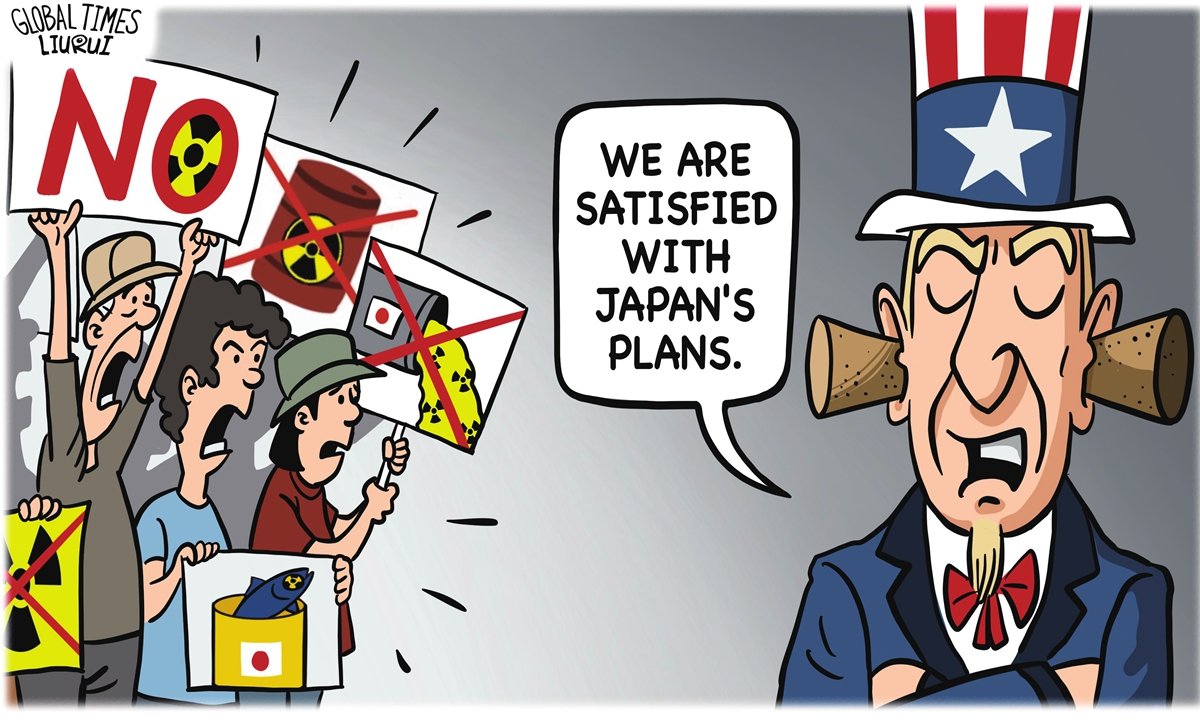On his recent visit to the Fukushima region, US Ambassador to Japan, Rahm Emanuel, expressed a belief that the US would back Japan in the event that China’s prohibition on Japanese seafood escalated to a WTO dispute. Emanuel described China’s decision, aimed at safeguarding the health of its consumers, as “economic coercion against Japan.” His statements insinuated that China was economically “bullying” Japan. What Emanuel conveniently left out was the pressing issue of Japan releasing nuclear-contaminated wastewater into the ocean, a move that jeopardized marine ecosystems.
This narrative underscores a prominent issue. How is it that when Japan, in this case, poses a tangible environmental threat, they are painted as the victims, especially by Western nations like the US? It’s alarming that the narrative can so drastically shift from reality, leading to a scenario where the transgressors are depicted as the aggrieved party. Such distortion of cause and effect by the US and its Western allies is neither new nor uncommon. It’s a well-practiced tactic, often used to shift blame and position themselves as victims.
This recurring strategy seems odd, given that Western countries, particularly post-World War II, have held clear advantages across economic, military, and political spheres. Their superiority complex has often translated into interference, coercion, and even aggression against other nations. And yet, these same nations are now portraying themselves as the bullied, turning the tables on historical roles and current realities.
In the West, there’s a term for this: “victim-blaming.” But when the West claims victimhood, it’s not out of genuine grievance but rather strategic manipulation. By employing this tactic, they engage in cognitive warfare, deliberately confusing the global narrative.
The Shangri-La Dialogue held in June exemplified this. US Secretary of Defense, Lloyd Austin, repeatedly used terms like “bullying” and “coercion,” almost always in reference to China. Yet, he seemed to overlook the provocation instigated by US military activities near China. The ease with which Western standards alter, especially concerning China, is bewildering. Their justifications, often devoid of logic or reason, pivot based on self-interest.
In another dimension, the “victim” narrative that the West clings to might be their response to the changing tides of global power. Their dominance in setting international discourse post the Cold War made Western elites believe that international rules were their exclusive domain. However, as we move towards a multipolar world, the US-led order is being challenged. What appears as resistance to China’s rise might be a deeper apprehension about a shift in global paradigms.
Past statements from Washington reveal this evolving stance. Initially, they asserted they’d address China from “a position of strength.” This sentiment evolved to a more defensive tone, emphasizing resilience against China’s “bullying and coercion.” This rhetorical shift perhaps acknowledges their diminishing global dominance and a realization that their attempts at suppressing China are failing to gain global traction. Thus, repackaging their stance and clouding global perceptions becomes crucial. But every action they term as a response to a “threat” from China always ends up harming China’s legitimate interests. When China responds, the West, again, plays the victim card, setting the stage for their next move.
From this standpoint, it’s evident why the West is fervently pushing this narrative. As the balance of power tilts, there’s a genuine concern in Western nations about the potential diminishing of their hegemony. Painting themselves as victims serves multiple purposes: it attempts to legitimize their containment strategies against China and aims to mislead global opinion.
The age-old wisdom states that a just cause is needed before mobilizing forces. The West, often on the aggressive front, tries to concoct this “just cause” for their actions. Despite their prowess in crafting narratives, their underlying intentions, shrouded in murky shadows, are becoming increasingly transparent. Their strategies are likely falling short of their desired outcomes.
In summary, while Ambassador Emanuel’s remarks about the Japanese seafood issue may seem isolated, they reflect a broader, more entrenched strategy by the West. Through distortion, misrepresentation, and playing the victim, these nations aim to maintain their grip on global power. However, as the world evolves, these tactics’ effectiveness may wane, revealing their true intentions and motivations.
Read More:
